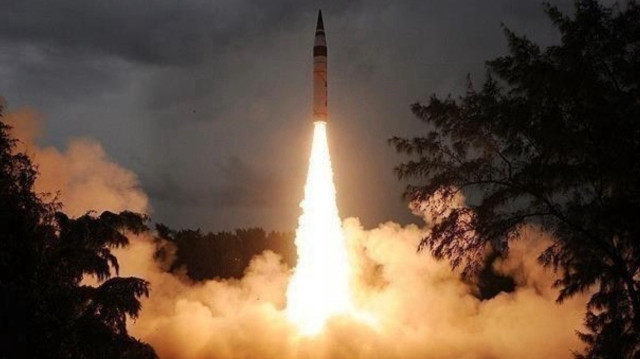
'As required by the head of state, we must be ready for anything. We see the situation on our western and northern borders and cannot calmly watch militarization and military activity,' says Belarusian defense minister
Belarusian Defense Minister Viktor Khrenin announced on Wednesday that the upcoming Zapad-2025 military exercises will include training in the use of nuclear weapons and Russia's advanced Oreshnik missile system.
Speaking at a press briefing in the Belarusian capital of Minsk, Khrenin described nuclear weapons as "an important element of strategic deterrence."
"As required by the head of state, we must be ready for anything. We see the situation on our western and northern borders and cannot calmly watch militarization and military activity. We demonstrate openness and peaceful intent, but powder should always be kept dry," he said.
The Zapad-2025 exercises will take place on Belarusian territory between September 12 and 16. The drills will focus on using troop formations to ensure the Union State's military security. Belarusian and Russian forces will practice air defense and countering enemy sabotage groups.
Last week, Lukashenko said that "no one wants to use nuclear weapons," but if attacked, Belarus would respond "with all available means."
Lukashenko announced that the Russian-made Oreshnik complex, set to be delivered to Belarus by the end of 2025, is capable of carrying nuclear warheads, noting that Russia’s deployment of nuclear weapons in Belarus has altered the nature of dialogue with the US and other Western nations.
On March 25, 2023, Russian President Vladimir Putin announced that Moscow, at Minsk's request, would station its tactical nuclear weapons in Belarus, mirroring the US approach with its allies.
On April 25, 2024, the Belarusian leader confirmed that several dozen nuclear munitions were already in the country. Under the Treaty on Security Assurances within the Union State, which took effect on March 13, 2025, after the exchange of ratification documents, both parties recognize Russia’s nuclear arsenal as a critical deterrent against nuclear and conventional conflicts, while stressing that its use would be an extreme and forced measure.







